0

0


It took two years to gain recognition for their association, but today Share Mercy is able to focus on the education of young people, farmers, human rights, good governance and language learning. Also, together with other partners, it seeks to promote peace between religions.
Nini is a Buddhist. She has always lived in Rangoon.
After studying commerce, she worked for foreign shipping companies. In the wake of Cyclone Nargis, thanks to her English skills, she was employed by foreign NGOs.
Thereafter, together with her friend Wayan, she co-founded Share Mercy to provide assistance to delta inhabitants who were still in distress.
A NEED FOR PROXIMITY TO THE LAND





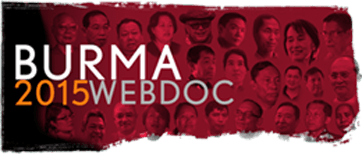







A website devoted to Burmese civil society rights
A website devoted to Burmese civil society rights
An article on the drafting of the the Association Registration Law
An article on the drafting of the the Association Registration Law
Video footage of Cyclone Nargis
Video footage of Cyclone Nargis
An article questioning the number of deaths caused by Cyclone Nargis
An article questioning the number of deaths caused by Cyclone Nargis
Zarni’s journey
Zarni’s journey

Mya’s journey
Mya’s journey


Historically, civil society groups in Burma were community or religious organizations. They existed at the local level and were traditionally linked to the Buddhist or Christian religions. They had essentially activities related to poverty, health and the basic needs of communities. These groups began to have a formal existence from the English colonial period. They fulfilled social missions where, often, the services of the state were absent, especially in the ethnic territories.
In the nineteenth century, student cultural associations gradually began making political demands and were transformed into trade unions. They were one of the main forces that inspired the anti-colonial movement.
At independence in 1948, civil society developed, bringing together more volunteers. Then, in the following years, Burma experienced one of the most draconian and repressive policies in the world regarding the associative world under the dictatorship of General Ne Win. One of the characteristics of that dictatorship was to make it as difficult as possible for civilians to associate with each other. The restrictions were such that the associations that did exist were either run by people close to power or else were underground.
The next dictatorship, formed by a military junta, continued to prohibit civil society from forming associations, while creating its own, led by serving military officers, the Union Solidarity and Development Association (USDA). The dictator Than Shwe was its chairman. In order to progress in society, whatever your profession or function, it was necessary to join the USDA. Over 15 fifteen years, almost half of the Burmese population joined the USDA! When the junta decided to move towards disciplined democracy, it transformed its association into a political party: the Union Solidarity and Development Party (USDP), which governed the country from 2011 to 2015.
Cyclone Nargis, which devastated the Irrawaddy delta in 2008, led many civilians throughout the country to come together in aid of the victims, faced with authorities whose only response was to place restrictions on activists who, for example, provided support to hundreds of underprivileged families who had to organize the funerals of their loved ones.
For two years after the Thein Sein government was installed, a new law on associations was discussed by civil society and parliament before being registered in July 2014. Numerous restrictions were removed from the initial version, to the satisfaction of civil society. Some believe, however, that administrative burdens, and the risk for community leaders of receiving disproportionate penalties in the event of non-compliance, remain an obstacle to the creation of civil society groups.
Since a government was elected for the first time in decades, in April 2016, the state has increasingly recognized the importance of civil society and the need to fulfill missions for which it either lacks resources or from which it is completely absent.
Hla Myat Tun from Colors Rainbow talks about the rights of the LGBT community in Burma
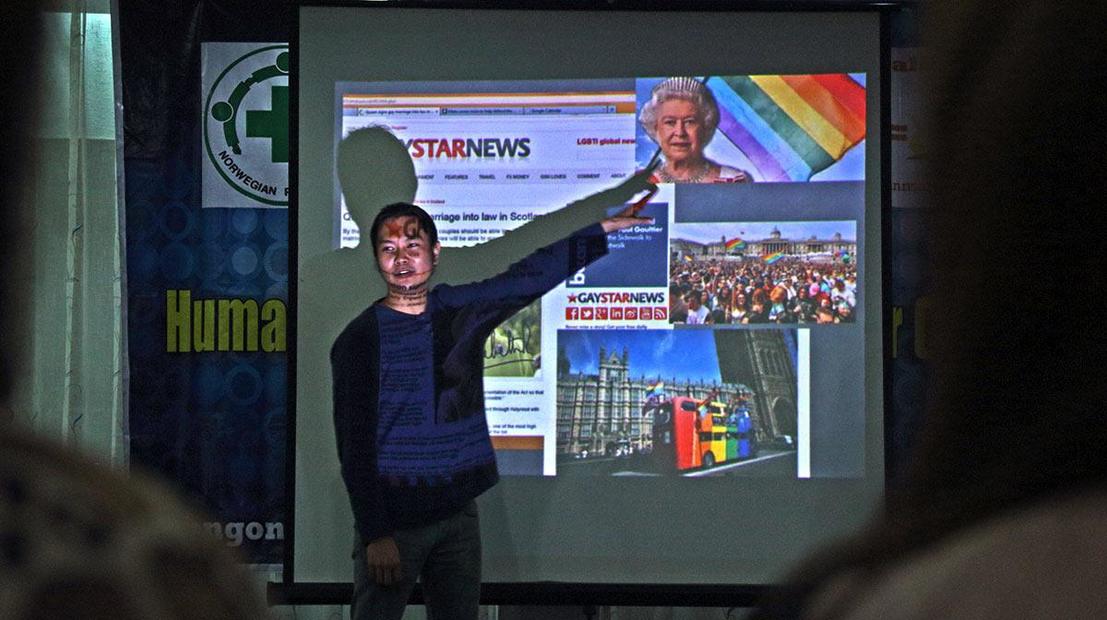

Share Mercy was created to assist those people affected by Cyclone Nargis. By continuing to work with farmers, Nini and Wayan were able to decipher the mechanisms used to confiscate land: army battalions, local authorities and cronies often take advantage of the fear, ignorance and weaknesses of peasants to seize their land.
They naturally decided to help the farmers by giving them the means to defend themselves, i.e. knowing how to present themselves and to communicate in defense of their rights.
At their base, Nini prepares farmers for a meeting with opposition icon Aung San Suu Kyi.
PROTECTING YOURSELF MEANS KNOWING HOW TO COMMUNICATE










An article on the rural-urban development divide
An article on the rural-urban development divide
An article on the benefits of smartphones in rural Burma
An article on the benefits of smartphones in rural Burma
An interview with Ma Thandar of The Democracy and Peace Women Network that conducts awareness-raising programs for farmers
An interview with Ma Thandar of The Democracy and Peace Women Network that conducts awareness-raising programs for farmers
Zarni’s journey
Zarni’s journey

Mya’s journey
Mya’s journey


Aware that this is a notion that must be cultivated at an early age, Share Mercy works with primary schools in poor neighborhoods such as Dala, where the inhabitants practice different religions.
Nini and Wayan want to share their ideas about what diversity has to offer to groups. In the language courses they design for the younger generation, they put their ideas into practice by deliberately mixing students from different ethnic and religious backgrounds.
TEACHING SHARING AND DIVERSITY






After 50 years of dictatorship, both the urban and the rural population found themselves in extreme poverty and subject to pressure by the authorities, but this situation has since evolved.
Political changes effected in the early years of the Thein Sein Government (2011) and under the government led by Aung San Suu Kyi (2016) mainly concern the urban populations: incipient economic gains and freedom of speech.
In the countryside, the restrictive attitude of the authorities towards the population has changed little.
Access to even the mediocre education offered by State schools is more difficult in rural areas and often beyond the means of parents.
Rural populations often depend on those who have knowledge. Many rural children attend schools in monasteries where these exist. Adults, meanwhile, have to deal with the authorities. Their relations are still often characterized by nepotism, corruption and threats. The rule of law is far from prevalent and farmers are handicapped by their lack of skills in answering and defending themselves against the authorities, who take advantage of this situation.
Yenangyaung City Market in the Magwe Region
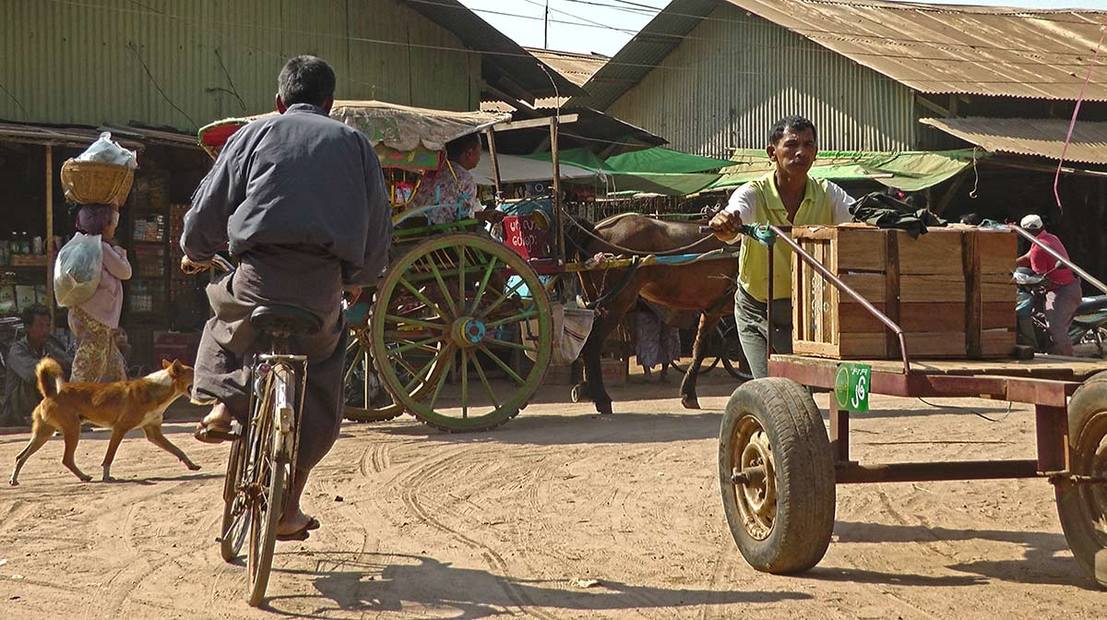





An article showing the timeline of student protests against the Education Law
An article showing the timeline of student protests against the Education Law
A report on the problem of access to education for children of Rohingya origin
A report on the problem of access to education for children of Rohingya origin
A report on the state of education in Burma
A report on the state of education in Burma
A video on the orphans support program set up by Share Mercy and HHRD (Helping Hand for Relief and Development)
A video on the orphans support program set up by Share Mercy and HHRD (Helping Hand for Relief and Development)

Those buddhists that exclude
Those buddhists that exclude
A perspective on the historical tensions between a part of the buddhist community and the Muslim community with the film
Zarni’s journey
Zarni’s journey

Mya’s journey
Mya’s journey


When, in 2012, Thein Sein was considering educational reform, similar findings were made by the National Network for Education Reform (NNER) formed at the time to reflect on the changes needed by the education system. The NNER consists of teachers, students, intellectuals, education specialists and foreign advisers.
Finally, the national commission on education established by the Government drafted a law that only partially took into account the ideas put forward by civil society, in particular the need to free curriculums and teaching staff from the constraints imposed by 50 years of military governance.
Accordingly, students staged peaceful marches to demonstrate their disagreement. Seeking to put a stop to these gatherings, the authorities suppressed the last of these with a violence that had not been seen since the previous dictatorships. More than 70 students were imprisoned for more than a year before receiving an amnesty when Aung San Suu Kyi’s government took power in mid-2016.
The State education budget remains one of the lowest in the world, although the Government has increased it. Experts believe that the situation is such that those involved in education will first need to "relearn how to learn". As a result, the development of the Burmese education system will take time and shortages of qualified personnel will in the meantime handicap economic growth.
At independence in 1947, the universities of Burma were the best in the region. The Burmese population was highly literate. There was a Burmese literature and many newspapers.
But the decades of dictatorship virtually ended the renewal of the generations of intellectuals, or simply access to education. During this half-century, the authorities feared dissenting voices and did everything they could to keep the population in ignorance. One per cent of the State budget was devoted to education, compared with 25% for the army. All foreign relations and foreign influences were rapidly banned. Over a decade, the junta regularly closed universities. Most bright students who could afford to do so left for abroad.
Later, Aung San Suu Kyi was to say:
“The idea of the need to have disciplined students broke university life. It's amazing! Everyone knows that students are not disciplined. So, we should not waste our time on something so frivolous and undesirable.”
Today, 90% of children enter primary education, but only 60% conclude it to enter secondary school. In ethnic areas, this rate is much lower. Teacher training is inadequate and an education system that emphasizes “rote learning”, with answering exam questions as its only goal, neglects encouraging students to think for themselves and to develop a critical mind.
Because school classes everywhere are overcrowded, children only really learn in fact when they pay for private tuition. The same teachers as in school often teach them. They seek to supplements their incomes outside of school hours. In the countryside, many families are unable to afford private tuition for their children.
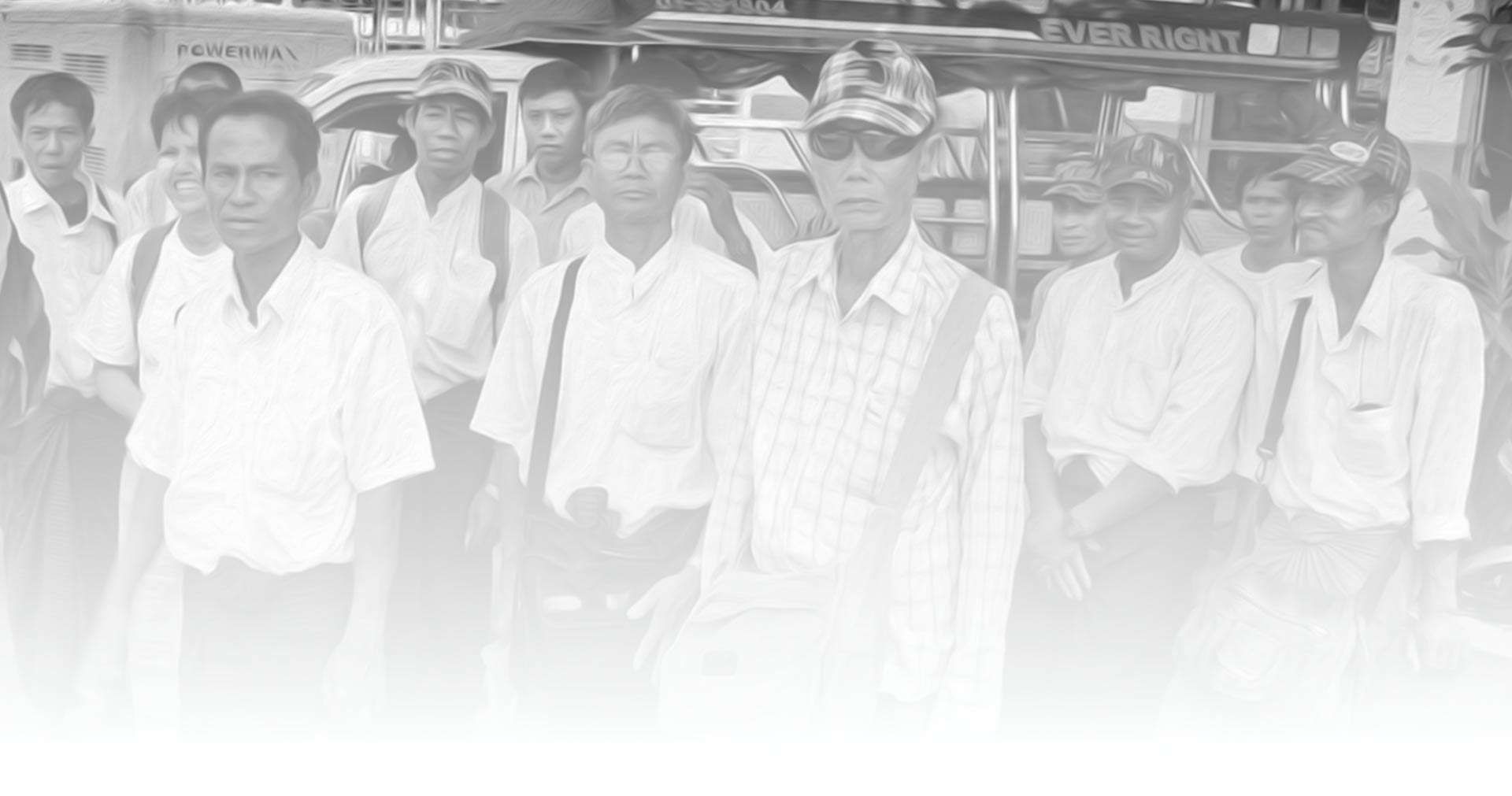
However, they often encounter corrupt authorities. And because of the ineffectiveness of the Parliamentary Land Use Investigation Commission, they seek support from democratic institutions, now the National League for Democracy political party.
Nini and Wayan work with farmers in the region of the Irrawaddy delta and Rangoon. They seek first to resolve amicably disputes over land confiscation, between farmers on the one hand, and companies and the authorities on the other.
THE NEED TO PUSH FOR TRANSPARENCY










A report analyzes the relationship between land reforms and social tensions
A report analyzes the relationship between land reforms and social tensions
An article on the link between investment in agribusiness and land confiscation
An article on the link between investment in agribusiness and land confiscation
A report on the model of access to land in the country
A report on the model of access to land in the country
Zarni’s journey
Zarni’s journey

Mya’s journey
Mya’s journey


Plots of land belonging to farmers in the Hlaing Tayar neighborhood in northern Yangon were requisitioned by the commune administration and then sold to Wah Wah Win 20 years ago
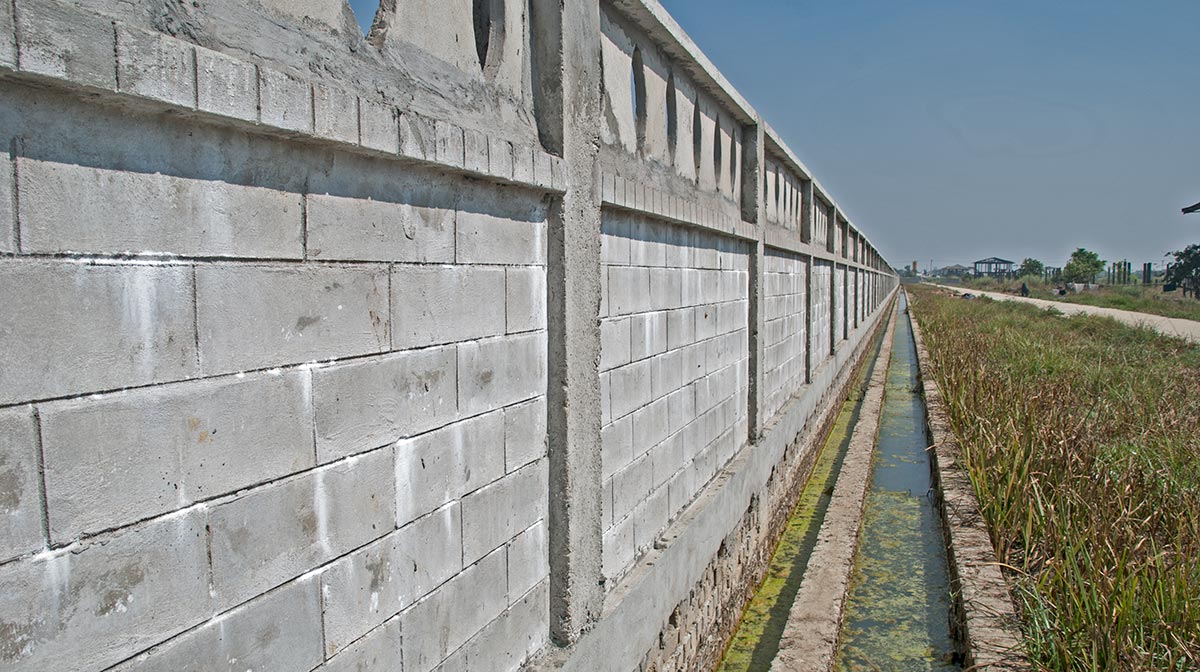
At the time of the Burmese junta, the army, some ministries and cronies (industrialist accomplices of the military) appropriated large areas of land at the expense of farmers. Millions of hectares were confiscated during these decades.
In the 2008 constitution, written by and for the military, an article states that "the central state is the ultimate owner, on the national territory, of all lands, all natural resources, below and above the ground, above and below water and in the atmosphere". This is only the confirmation of a law that dates from the colonial era and is still in force.
After it came to power in 2011, the Thein Sein Government showed it was willing to develop and open up the country's economy. With the help of international financial institutions (the IMF, the World Bank, the Asian Development Bank...), the Government pushed for the development of infrastructure and certain of the country’s industrial sectors. Access to land became necessary and, as a result, the problem of land grabbing increased for farmers.
The Government chose not to resolve property disputes using the justice system, in the knowledge that there would be too many cases. But for requisitions of land dating from the dictatorship, in 2012 it created a parliamentary Land Use Investigation Commission. Its role is to gather all complaints, but it has no power of coercion.
Sometimes these situations involve the army at the national level, sometimes it is battalions in one region that are the source of the problem. Often, previously, companies working with the military junta simply helped themselves to plots of land. In other cases, the original owner of the land saw it occupied by new farmers who obtained the right to use it from a local administration up to national level. Finally, it has been shown that some members of the Land Use Investigation Commission are directly responsible for grabbing land from farmers.
In many cases, contradictory laws make conflict resolution difficult. Since 2012, they have been multiplying and the difficulty of proving who is the original owner makes the procedures very long or even impossible to conclude. Of the 30,000 cases collected by the Parliamentary Land Use Investigation Commission and transmitted to the Government since 2012, only about 4% had been resolved in 2015.
In May 2016, the new government of the National League for Democracy (NLD) formed a Central Committee for Confiscation of Confiscated Lands, which is under the control of the executive and not parliament, to remedy the complex confiscation situation.
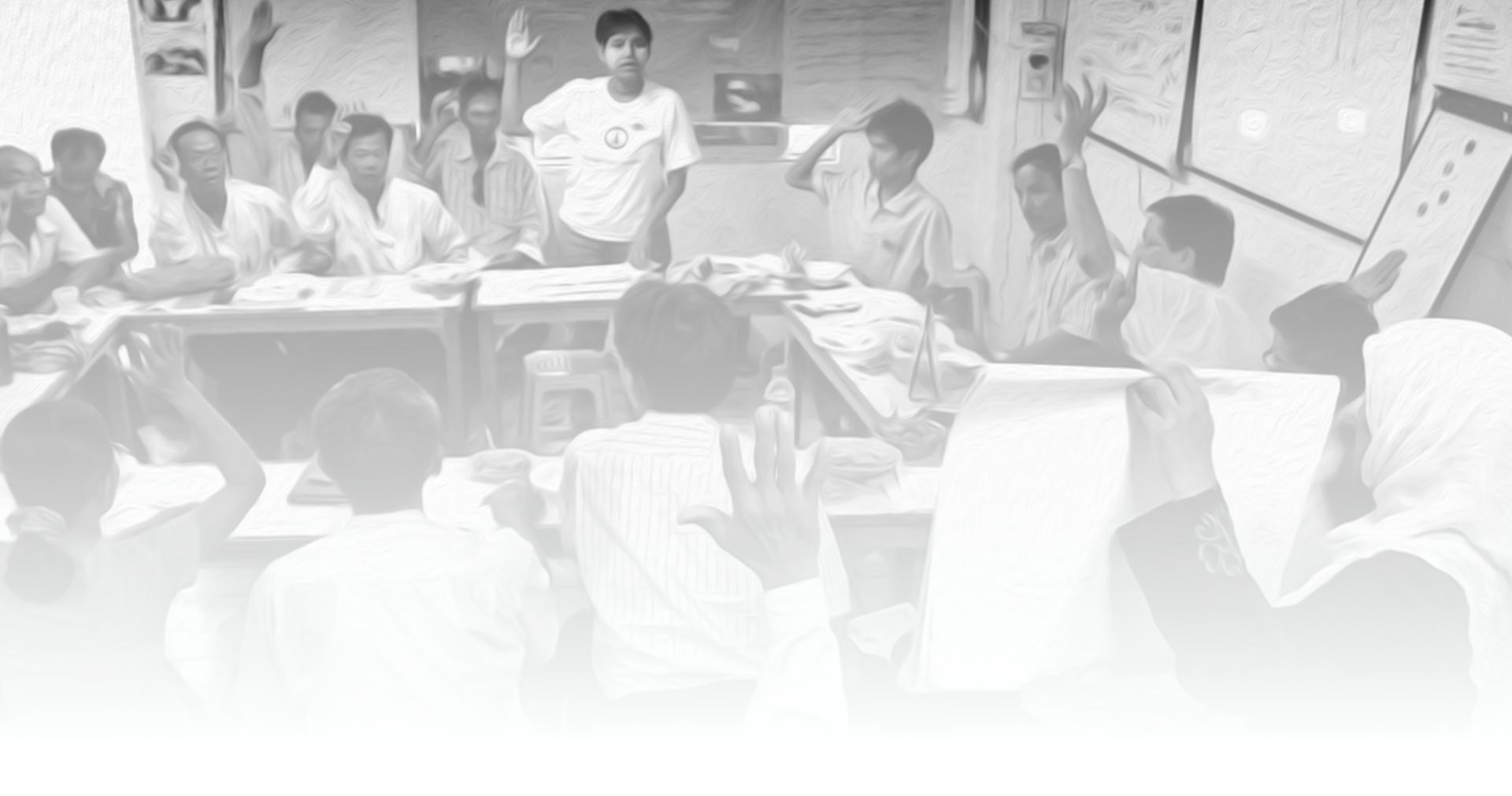
Discreetly, they organized a meeting with their farmer contacts from the Irrawaddy Delta and farmer leaders from other parts of the country.
Nini and Wayan observed the difficulties faced by farmers. They are looking for ways to make them less vulnerable. One solution is to have them work together.
THE NEED TO REGROUP










A report on the global phenomenon of land grabbing
A report on the global phenomenon of land grabbing
A report on farmers indicted after a demonstration against the seizure by the army of 1,000 ha of land
A report on farmers indicted after a demonstration against the seizure by the army of 1,000 ha of land
An article about a curse campaign by farmers whose land was grabbed
An article about a curse campaign by farmers whose land was grabbed
Land at the heart of national reconciliation
Land at the heart of national reconciliation
A perspective on the problem of land with the film

Zarni’s journey
Zarni’s journey

Mya’s journey
Mya’s journey


At the beginning of its mandate, the Thein Sein Government passed two laws on agricultural land. One of them allows the state to grant concessions of large tracts of land without dedicated owners, even if families have been using them for decades.
This law is ideal for agribusiness, which is thus able to access the large areas it needs. The Htoo Group of the crony named Tay Za, for example, was granted more than 350 000 ha in Kachin state alone, pushing aside families who cultivated strips of land.
The first valid laws on land date back to the mid-nineteenth century. Today, there are 70 laws, amendments and regulations that apply to land ownership! Farmers are unable to understand the complexities.
For the first time in decades, small farmers (those working less than 2.3 ha) were allowed to form trade unions in 2012. This was an imperative to enable them to regroup and defend themselves in the face of increasing land confiscation and lenders who take advantage of their weaknesses and ignorance to make loans at abnormally high rates.
The plots of land of many small farmers, overwhelmed by debt, are confiscated and they are forced to stop farming and find work elsewhere, often abroad, in Thailand or Malaysia.

Pushing mentalities to change
Since 2010, Share Mercy's work with peasants in the Irrawaddy and Yangon region is primarily a mediation work between the authorities at different levels, business owners and the population.
The proper functioning of their work depends on the relationship they establish with each individual, among others at all hierarchical levels of the authorities to which they have to do.
The years of dictatorship created a climate suspicion
of non-military authorities to civil society.
Before the law on associations passed in the Parliament in 2014, local authorities kept their old habits, exerting pressure from their own initiatives or often guided by their hierarchies.
It comes to unannounced visits, questioning on activities or audits of accounts, for groups working on social issues such as the rights of workers, peasants, homosexuals, former political prisoners particularly.
The eyes of the authorities during Thein Sein's government remained very different for religious organizations or those close to the authorities.

The objective is to provide all residents with sustainable access to healthy food. They reflected together on the proposed content in order to better orient this law towards the needs of the weakest, but their reflection was firstly not taken into.
The working group within the network is called the Land Core Group (LCG). It maintains contact with government agencies, the private agricultural sector and civil society. Its chairman, who played an active role in the writing of the National Land Use Policy, met with Nini and Wayan regarding possible participation in a pilot program set up by the United Nations.
In 2012, the Thein Sein government announced that it would implement a new National Land Use Policy and consulted with civil society for this purpose.
Together with other civil society groups such as "Land In Our Hands", Share Mercy reflected on the proposed content in order to better orient this law towards the needs of the weakest, but their reflection was not taken into account.
Share Mercy like most CSOs working with the agricultural sector are members of the "Working Group on Food Security" network (FSWG). The latter includes 160 international CSOs, mainly from Burma, but also from international NGOs such as Save the Children and GRET (a French development NGO).
ADAPTING FOR MORE EFFECTIVE ACTION
















An overview of the meaning of land ownership and the question of land grabbing in Burma
An evaluation of the new policy on land use initiated by the Thein Sein Government
An evaluation of the new policy on land use initiated by the Thein Sein Government
Zarni’s journey
Zarni’s journey

Mya’s journey
Mya’s journey


In his inaugural speech in 2011, President Thein Sein said:
"We are determined to improve the living conditions of farmers and workers and we will update the laws to protect the rights of farmers."
The new laws written in 2012 and 2013 did not achieve this goal for the 70% of the population who draw their livelihood directly from the agricultural sector, small landowners and especially day laborers.
At the end of 2013, the Government launched the drafting of a framework law called "National Policy on Land Use", meant to "harmonize" all the related legislation. A broad consultation of civil society (CSO) was announced. But the 14 meetings organized by the Government in each state and region of the country were attended only by invited CSOs, often close to the authorities.
After a few months, a draft law was written. Those CSOs that were able to obtain the draft had only four weeks before the law was presented to parliament, too short a period to allow them to consult the base, the farmers themselves and to make productive counter-proposals.
Overall, civil society felt that this law was too favorable to the agricultural industry at the expense of small farmers.